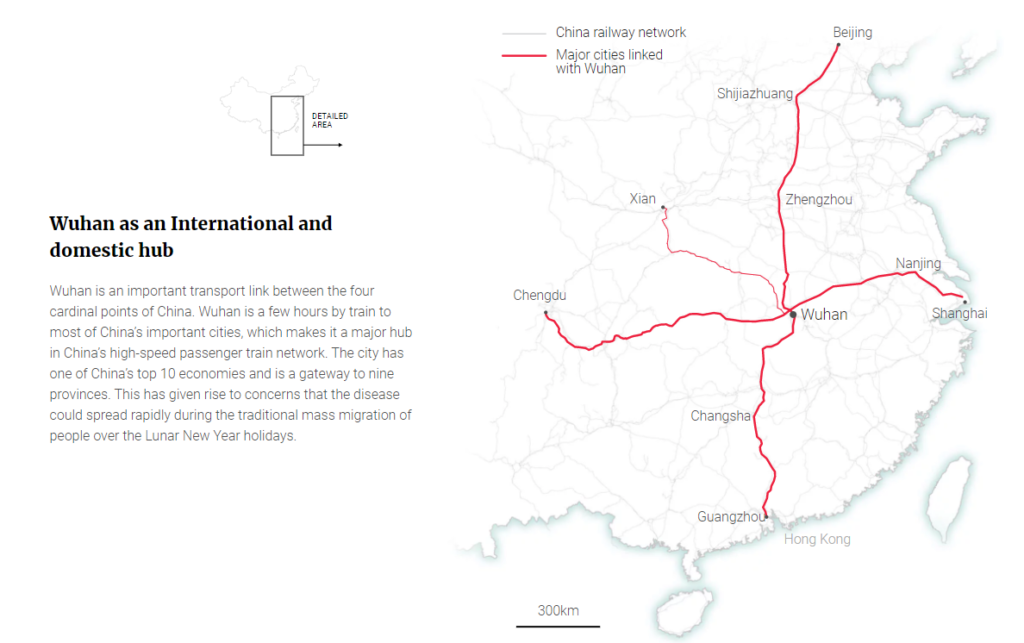Coronavirus International Shipping Update
Coronavirus International Shipping Update
updated March 10, 2020
Scarbrough has been notified that some carrier lines’ offices are operating at normal capacity throughout China. These carrier offices are located in Dalian, Tianjin, Qingdao, Lianyungang, Shanghai, Ningbo, Nanjing, Chongqing, Suzhou, Hong Kong, Fuzhou, Xiamen, Shenzhen, Guangzhou, Zhongshan, Shantou and Zhanjiang.
However, the office location within Wuhan, China continues to await local authority approval to reopen and will resume operations at that point. Clients should also be advised all ports listed above are experiencing a trucking force shortage.
Several trade show event and conferences in North America have been cancelled within the last week, however a good amount of trade shows are still occurring. One should be prepared for a surge of shipments between April and May when retailers are normally importing back-to-school merchandise, and other manufacturing and production sites start shipping at their normal volume again. These “import surges” effect vessel space, air and ocean rates, congestion at terminals, equipment availability, and the list goes on. What to do? Read on and find out….
March 3 , 2020
The coronavirus disease (COVID-19) has not only disrupted daily living for those countries with infected citizens, but has caused a ripple effect in global supply chains. Chinese factories were shut down at the very end of January, causing a slowdown of raw materials, manufactured goods, and finished goods, all of which have caused other manufacturing sites, distributors, wholesalers, and retailers to feel the effects. Aside from the people in Hubei Province, 80-90% of Chinese workers have resumed work. Production and manufacturing at factories are only working at about 60-70% capacity due to the lack of parts, material, components etc. From the words of Scarbrough’s Chinese partner, “It’s assumed the whole market will be back to normal the latest in mid-March.” Our Chinese partner goes on to mention, “The shops and restaurants are re-opening. The biggest purchase occurring is on cars since the people have fear of taking public transportation to work. The car dealers are busier than ever.”
When product is unavailable, equipment is unavailable.
Just as one example, a Journal of Commerce article states that Indian freight forwarders are seeing supply chain disruptions including cancelled sailings and equipment shortages. Moreover, American Shipper states, “After previously shutting down operations in China, where the new coronavirus originated and where there are about 80,000 confirmed cases [at the time], airlines are reducing flights to other parts of Asia, including South Korea, Japan and Singapore….Fewer passenger aircrafts in the air mean fewer options for companies to ship cargo. Dedicated all-cargo carriers could benefit by the new market dynamic, but that assumes that the disease doesn’t force manufacturers to halt production as part of quarantine efforts to control the outbreak.” It is forecasted that shippers will see general rate increases occur, as well as congestion and other surcharges of the like.
Furthermore, Vietnam, which became a prime destination for manufacturing finished goods after the Section 301 tariffs went into place, is facing a big challenge as Chinese factories delay production of manufactured goods or raw materials needed to produce those goods. The same is true for several other countries and regions in the world, including Europe and the United States.
When will it end?
While freight forwarders cannot predict an end, it is assumed these disruptions will last for several months. It is estimated that all supply chains will not return to what is known to as as “completely normal” until June 2020…. and that is just an estimation. Until then, expect delays and rate increases. To accommodate, and according to the same JOC article mentioned above, freight forwarders are working with several partners to minimize disruption but the “challenges remain daunting.” Some tactics that forwarders are using include alternative routings, but these come with increased cost and surcharges, and the equipment availability globally is still an issue.
As if matters didn’t seem bad enough.
TPM20, the Trans-Pacific Merchants 2020 Conference, which was scheduled for March 1-4, 2020 was cancelled over the weekend due to concerns over the growth in cases of coronavirus (COVID-19). TPM is an international logistics conference that draws 3PLs, BCO’s, container lines, and many other freight interest groups from across the globe. The event which was celebrating it’s 20 year anniversary was expected to attract more than 2,000 people. There is no mention of rescheduling TPM20, however announcements will be made later in regards to refunds and registrations. More events are expected to be cancelled as concerns over the spread of COVID-19 grow.
Am I at risk for COVID-19 from a package or products shipping from China?
According to the Coronavirus Disease 2019 (COVID-19) website, there is still a lot that is unknown about the newly emerged COVID-19 and how it spreads. Two other coronaviruses have emerged previously to cause severe illness in people (MERS-CoV and SARS-CoV). The virus that causes COVID-19 is more genetically related to SARS-CoV than MERS-CoV, but both are betacoronaviruses with their origins in bats. While we don’t know for sure that this virus will behave the same way as SARS-CoV and MERS-CoV, we can use the information gained from both of these earlier coronaviruses to guide us. In general, because of poor survivability of these coronaviruses on surfaces, there is likely very low risk of spread from products or packaging that are shipped over a period of days or weeks at ambient temperatures. Coronaviruses are generally thought to be spread most often by respiratory droplets. Currently there is no evidence to support transmission of COVID-19 associated with imported goods and there have not been any cases of COVID-19 in the United States associated with imported goods. Information will be provided on the Coronavirus Disease 2019 (COVID-19) website as it becomes available.
What to do
Please try to understand that in this situation, transit times and delays cannot be controlled. As stated before, some of Scarbrough’s local partners have mentioned this epidemic is one of the worst they have seen in their lives. Scarbrough will continue to monitor the situation, while keeping our partners and friends located around the world in our thoughts. Scarbrough will send updates on your cargo if it is significantly affected. If you have any specific questions, please contact your direct customer service representative.
Most Importantly, Take Care of Yourself
To view the most up-to-date information on cases in the United States, visit the Centers for Disease Control and Prevention. In the meantime, follow these precautions:
- Avoid close contact with sick people.
- While sick, limit contact with others as much as possible.
- Stay home if you are sick.
- Cover your nose and mouth when you cough or sneeze. Avoid touching your eyes, nose and mouth with unwashed hands; germs spread this way.
- Clean and disinfect surfaces and objects that may be contaminated with germs.
- Wash your hands often with soap and water for at least 20 seconds. If soap and water are not available, use an alcohol-based hand rub with at least 60% alcohol.
Interesting Facts
Visit the South Morning China Post for very informative facts and infographics on the COVID-19, including the most up-to-date numbers on those infected with the virus worldwide, total populations of cities in lockdown, and how the virus is spread. For example, the below image from South Morning China Post, demonstrates how the disease could have spread rapidly during the traditional mass migration of people over the Lunar New Year holidays.
About Scarbrough
Scarbrough Global of Companies, headquartered in Kansas City with local presence in every major port in the world, is a complete international and domestic supply chain service provider, offering U.S., Mexican, and Canadian Customs brokerage, Import & Export Transportation Solutions, Domestic brokerage and asset-based trucking, Warehouse fulfillment and distribution services, Trade Compliance Consulting, Large Equipment and Project Cargo moves, as well as Parcel Audit Savings. Scarbrough is widely known for its trade experts, training, personalized customer service, customized solutions, and data analytics tools. Since 1984, Scarbrough has continued to satisfy its clients by following its motto on a daily basis: “It is our job to make your job easier.” Moreover, our team of experts is available at your disposal. We offer free consultations on any topic from supply chain optimization and duty savings opportunities to the basics, helping to guide new importers and exporters as they jump into the world of global trade. Contact us now.
Supply Chain Consulting
Scarbrough Consulting, Inc. is offering 30-minute consultations to ensure supply chain optimization. Email consulting@scarbrough-intl.com or fill out the form below:
Oops! We could not locate your form.


